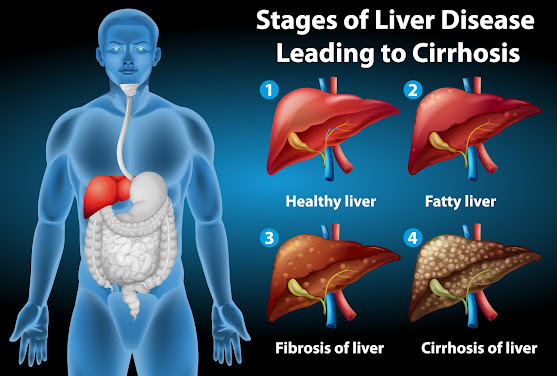A Comprehensive Guide to Liver Health: Understanding Hepatology
The liver is a vital organ that performs many
important functions, including:
·
Metabolism
of nutrients
·
Detoxification
of the blood
·
Production
of bile
·
Storage
of blood
·
Regulation
of hormones
Hepatology is a medical subspecialty that focuses on the
liver, gallbladder, bile ducts, and pancreas. A hepatologist is a physician who
specializes in the diagnosis and treatment of liver diseases.
Liver diseases can be caused by a variety of
factors, including:
·
Viral
infections, such as hepatitis A, hepatitis B, and hepatitis C
·
Alcohol
abuse
·
Fatty
liver disease
·
Cirrhosis
·
Liver
cancer
If you have
a liver problem, you should get Hepatitis Treatment in Indore. Hepatologists are doctors who specialize in
the diagnosis and treatment of liver ailments. They can give you with the
finest treatment available and assist you in managing your illness.
Here are some tips for maintaining liver
health:
·
Eat
a healthy diet that is low in fat and sugar.
·
Avoid
alcohol.
·
Get
regular exercise.
·
Maintain
a healthy weight.
·
Get
vaccinated against hepatitis A and hepatitis B.
·
Don't
share needles or other drug paraphernalia.
·
If
you are taking medications, be sure to talk to your doctor about how they may
affect your liver.
If you have
any concerns about your liver health, be sure to see a doctor. Early diagnosis
and treatment of liver disease can help to prevent serious complications.
Here are some additional details about the
liver and its functions:
·
The
liver is the largest internal organ in the human body. It is located in the
upper right abdomen, below the diaphragm.
·
The
liver is made up of two main lobes: the right lobe and the left lobe.
·
The
liver is responsible for many important functions, including:
Metabolism of nutrients: The liver breaks down
carbohydrates, proteins, and fats into smaller molecules that can be used by
the body for energy.
Detoxification of the blood: The liver removes harmful
substances from the blood, such as alcohol, drugs, and toxins.
Production of bile: Bile is a fluid that helps to digest fats.
Storage of blood: The liver stores blood that can be released
into the bloodstream when needed.
Regulation of hormones: The liver produces and stores
hormones that help to regulate metabolism, blood clotting, and immune function.




Comments
Post a Comment